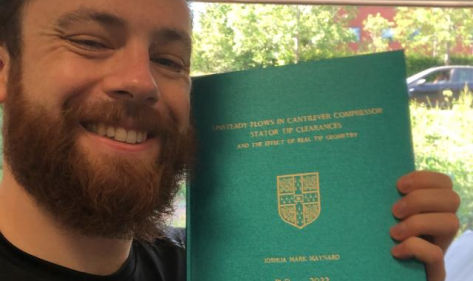For most of us, the growing use of glass in architecture might prompt questions of aesthetics, or perhaps of comfort and temperature regulation. But for Socrates Angelides, the most significant question is more sinister. How might that glass protect us from an explosion?
“In the last 50 years, there’s been more use of glass in buildings, and buildings which might be considered more vulnerable to terrorism such as airports and embassies are often covered with it,” he explains. “I’m interested in the blast response of buildings – specifically how glass behaves in an explosion.”
Socrates moved to the UK from Greece in 2009, to complete an undergraduate degree in Civil Engineering at Imperial College London. After graduating he worked for three years as a structural engineer, designing offshore oil platforms.
“I had always wanted to do a PhD, and the oil and gas crisis meant I needed to explore a change of direction anyway, so I came to Darwin in 2016 to do an integrated Masters and PhD. A colleague in London who had been at Cambridge suggested that, as I was already 26 and might not want to be surrounded by 18-year-olds, Darwin might be a good fit. He was absolutely right – it’s a very different vibe and I had a great experience.”
Socrates took particular delight in the College’s Formal Halls, regularly bringing visiting family and friends to experience the tradition. The two May Balls he attended will also live long in the memory.
He is now working as a postdoctoral researcher in an industry-focused partnership between the Steel Construction Institute and the University of Sheffield.
“I’m still looking at explosions, but focusing now on how to predict the blast loading on a building, and implementing the finding of my research into a blast loading prediction software (EMBlast). There’s lots of industry engagement, which is great.”
Socrates Angelides will graduate this Saturday with a PhD in Engineering (Future Infrastructure and the Built Environment)



